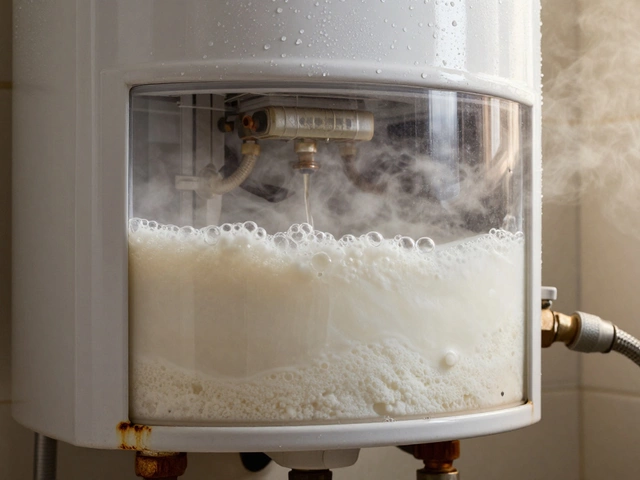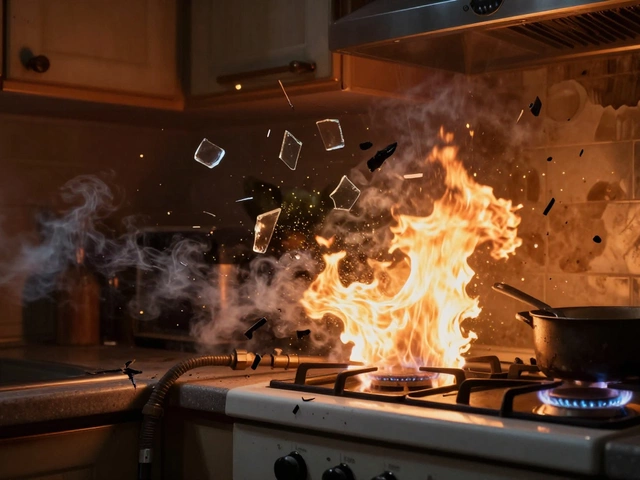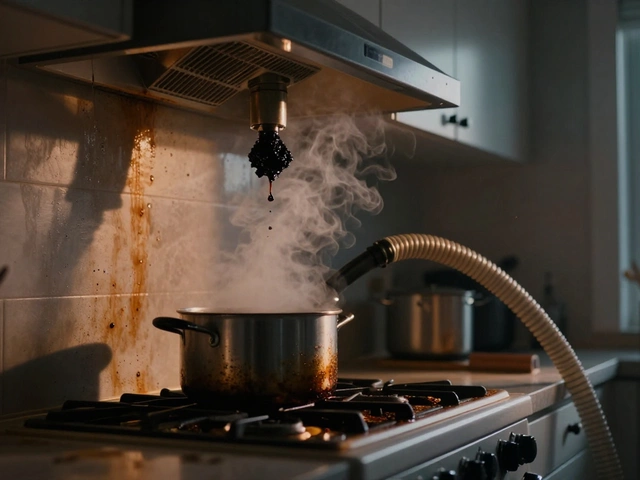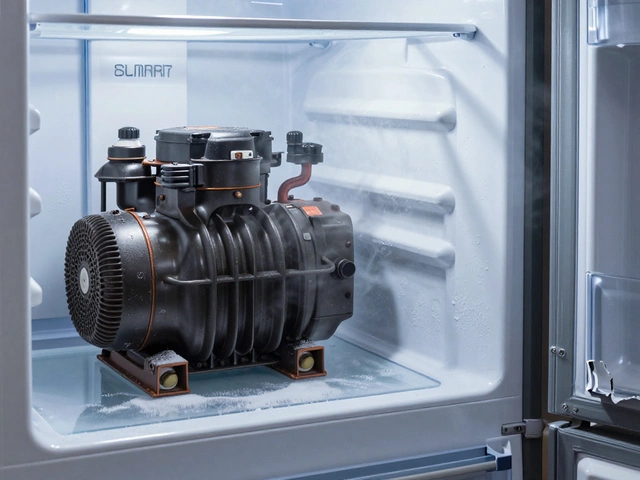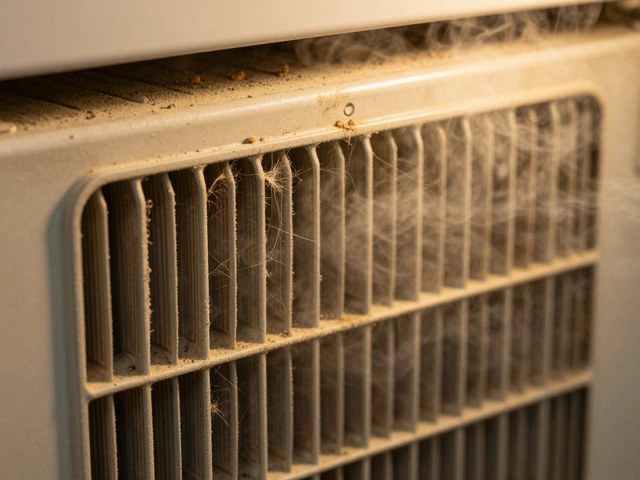Think your boiler is set to last forever? Sorry, that's wishful thinking. Even with the best care, boilers have a shelf life—and ignoring that can mean getting stuck with no heat on a freezing morning.
So how long should you realistically expect from a typical boiler? For most homes in the UK and US, the average gas or combi boiler runs well for about 10 to 15 years. Oil boilers sometimes push a bit further, maybe 15 to 20 years, but electric models tend to top out around the 10-year mark. After that, repairs can get pricey and efficiency often takes a dive, sending your bills higher.
- Average Lifespan of Different Boiler Types
- What Really Impacts a Boiler’s Life?
- Signs Your Boiler Needs Replacing
- Tips to Make Your Boiler Last Longer
Average Lifespan of Different Boiler Types
Before making any decisions about repairs or upgrades, let’s break down how long each type of boiler generally lasts. This isn’t just about a ballpark number—real stats tell the story.
| Boiler Type | Average Lifespan (Years) |
|---|---|
| Gas | 10-15 |
| Combi | 10-15 |
| Oil | 15-20 |
| Electric | 8-10 |
If you’re wondering why oil boilers outlive gas and electric models, it’s mostly down to simpler parts and the fact that oil burns a bit cleaner inside the system, reducing corrosion. Electric boilers look easy, but years of heating elements switching on and off really take a toll, so they tap out sooner.
Here’s what the folks at the Energy Saving Trust have to say about boiler life expectancy:
“Regularly serviced boilers have a more predictable lifespan, but even well-maintained units usually need replacing after about 15 years as parts wear out and efficiency drops.”
It’s pretty clear: pushing your boiler well past these numbers usually means more breakdowns, higher heating bills, and eventually, no heat just when you need it most.
- If your boiler is more than 12 years old and starts needing repairs, replacement might save you money in the long run.
- Modern boilers are up to 30% more efficient than units from just two decades ago, so age matters for your wallet too.
What Really Impacts a Boiler’s Life?
The boiler life expectancy isn’t set in stone. Most folks are surprised to find out just how many things play into how long their boiler lasts. It’s not just about age—how you treat your boiler daily makes a big difference.
Here’s what really matters:
- Maintenance frequency: Annual servicing from a legit engineer can stop small problems from turning into big ones. Skipping checkups leads to scale buildup, leaks, or bigger breakdowns.
- Water quality: Hard water is rough on boilers. Minerals form scale inside, forcing the system to work overtime. A water softener can help a lot if you live in a hard water area.
- How you use it: Cranking the heat up and down constantly, or leaving it on high all winter, wears out parts quicker. Gentle, steady use is way easier on the boiler.
- Boiler location: Sticking your boiler in a damp cellar or a dusty, cold garage? That’ll cut its life short due to corrosion or extra strain in extreme temps.
- Install quality: A sloppy installation or bad plumbing leads to early troubles. A well-fitted boiler is happier and lasts longer.
It may be eye-opening to see just how much these things shift the numbers. Check out the table below for how these factors can trim years off—or stretch—the average lifespan:
| Factor | Impact on Lifespan |
|---|---|
| Annual Maintenance | Adds up to 3-5 years |
| Hard Water, No Softener | Reduces by 2-4 years |
| Poor Installation | Reduces by 3-5 years |
| Constant High Demand | Reduces by 2 years |
| Proper Location | Adds up to 2 years |
Long story short, treat your boiler right and it’ll stick around longer. Ignore these basics, and you could be forking out for a replacement much sooner than you’d hoped.

Signs Your Boiler Needs Replacing
Most folks hang on to their boilers until something completely fails, but there are some dead giveaways that it’s time to start shopping for a new one. Spotting these early signs can save you money on sudden breakdowns and soaring energy bills.
- Boiler life expectancy hits 15 years – Data shows that the risk of major issues spikes for boilers after 15 years, no matter how well you’ve cared for them. If yours is hitting that age (or older), don’t expect miracles.
- Rising energy bills – An old or failing boiler can start burning way more fuel just to keep the water hot. If your bills keep creeping up but your usage hasn’t changed, your boiler’s efficiency is likely dropping fast.
- Odd noises – Clanking, banging, or gurgling sounds aren’t just annoying. These noises usually mean parts like the heat exchanger or pump are worn or damaged. Sometimes it’s limescale build-up, which gets worse over time.
- Frequent repairs – If your engineer’s number is saved in your favorites or you’re seeing them more than your friends, your boiler is on borrowed time. Data from British Gas shows that boilers needing two or more major repairs in a year are much more likely to fail for good within 12 months.
- Yellow flame or pilot light issues – A healthy gas boiler shows a crisp blue flame. If yours burns yellow or keeps blowing out, shut it off and call a pro. A yellow flame can mean incomplete combustion, which is a serious safety risk.
- Leaks or puddles – Spotting water around your boiler, even small drips, can quickly turn into big trouble. Common causes include failing seals, cracked components, or corroded pipes.
- Slow heating or poor hot water – Does the heating take forever, or is the hot water only lukewarm? Sluggish performance is often the last warning before a total breakdown.
It’s usually cheaper in the long run to replace a failing boiler rather than patch it up year after year. Here’s a quick look at how frequent some of these issues pop up once a boiler gets old:
| Boiler Age | Annual Repair Calls | Average Efficiency |
|---|---|---|
| Under 10 years | 0.5 | 88% |
| 10-15 years | 1.2 | 80% |
| 15+ years | 2.3 | 70% |
If any of these signs sound familiar, it might be time to get a quote for a new boiler rather than crossing your fingers for another winter.
Tips to Make Your Boiler Last Longer
Let’s get real—nobody wants to replace their boiler sooner than they have to. The good news? A few simple habits can help you squeeze extra years out of your system and avoid those surprise repair bills.
- Annual servicing is non-negotiable. Get your boiler checked every year by a qualified engineer. A study from Which? shows boilers that get serviced yearly are 25% less likely to break down seriously before age 10.
- Keep an eye on the boiler’s pressure. If readings fall outside 1.0–2.0 bar (the safe zone for most systems), it’s time to adjust or call a pro.
- Flush the system every 5–7 years. This clears sludge and mineral buildup from radiators and pipes, which can cut boiler life by years if you ignore it.
- Bleed radiators once a year, especially before winter. Trapped air makes your boiler work much harder than it should.
- Use your heating occasionally through the summer. Even ten minutes every few weeks keeps parts moving and stops things from seizing up.
- Install a magnetic filter. These grab metal debris before it can clog things up—think of it like a kidney for your heating system.
| Maintenance Habit | Potential Extra Years Added | Common Issues Prevented |
|---|---|---|
| Annual Servicing | +3–5 years | Leaks, breakdowns, efficiency loss |
| Regular Flushing | +2 years | Blockages, boiler noise |
| Bleeding Radiators | +1 year | Cold spots, overworking |
| Using Heating in Summer | +1–2 years | Part seizure, poor startup |
If you really want your boiler life expectancy to reach the higher end of the range, don’t ignore those little warning signs—unusual noise, pressure drops, or small leaks. Get them sorted right away. A stitch in time really does save nine (and some serious cash).

